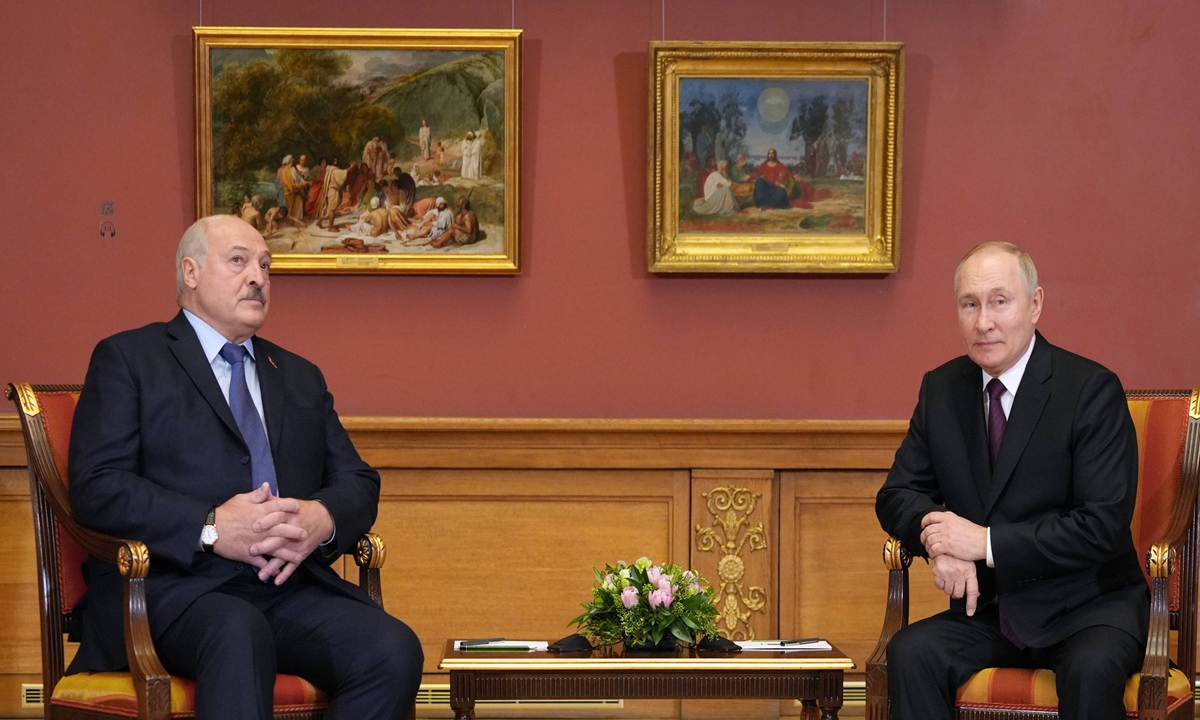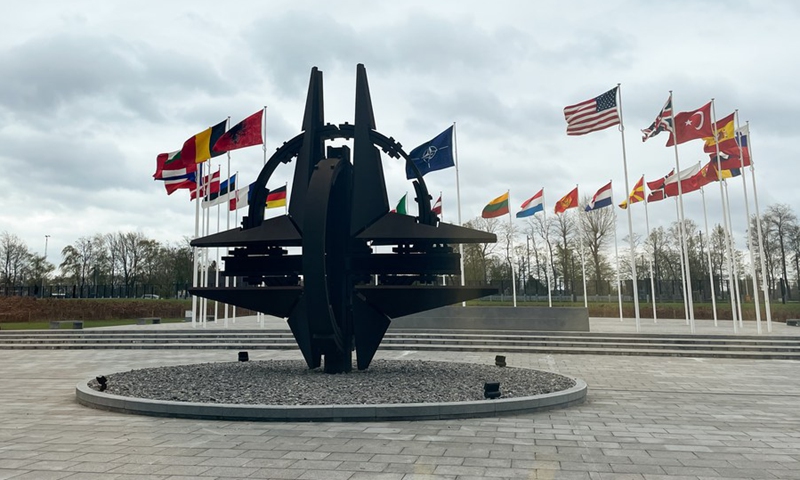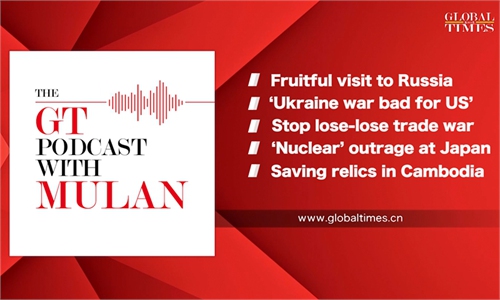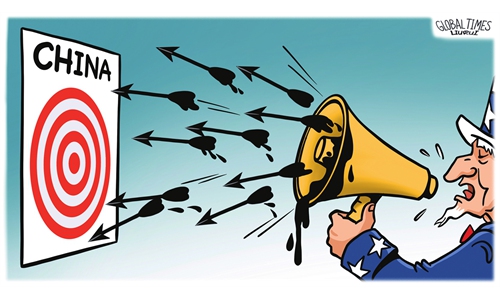'Effective peace talk mechanism needed' as Russia to place nuclear weapons in Belarus

Russia President Vladimir Putin (right) meets with Belarus President Alexander Lukashenko on the sidelines of an informal summit of the heads of state of the Commonwealth of Independent States at the State Russian Museum on December 27, 2022. Photo: VCG
 This photo taken on April 6, 2022 shows a sculpture and flags at NATO headquarters in Brussels, Belgium.(Photo: Xinhua)
This photo taken on April 6, 2022 shows a sculpture and flags at NATO headquarters in Brussels, Belgium.(Photo: Xinhua)
At a time when statements and actions by all parties are pushing up the risk of nuclear confrontation, experts stressed that an effective mechanism for peace talks must be put in place as soon as possible, rather than a continued arms race and fanning the flames of conflict.
Russian President Vladimir Putin said on Saturday that Russia will station tactical nuclear weapons in Belarus, noting that the move would not violate nuclear non-proliferation promises, Reuters reported.
Russia will complete the construction of a storage facility in Belarus by July 1, and will not transfer control of those weapons to Belarus, he stressed.
NATO on Sunday criticized Russia for its "dangerous and irresponsible" nuclear rhetoric. "NATO is vigilant, and we are closely monitoring the situation. We have not seen any changes in Russia's nuclear posture that would lead us to adjust our own," a NATO spokesperson said, Reuters reported.
The move from Moscow can be seen as a direct response to the UK's announcement that it would send controversial shells containing depleted uranium to Ukraine, to which Putin said Russia would be "forced to react," Cui Heng, an assistant research fellow from the Center for Russian Studies of East China Normal University, told the Global Times on Sunday.
The Ministry of Defense of the UK said on March 20 that some of the ammunition for the Challenger 2 battle tanks that the UK is sending to Ukraine includes armor piercing rounds which contain depleted uranium. The decision is believed to be setting a very bad precedent as depleted uranium munitions have been resisted by many countries given its harm not only to soldiers but also to civilians nearby.
Moreover, Russia's announcement is also a response to the US-led NATO's intensifying efforts on nuclear weapons proliferation, Song Zhongping, a military expert and TV commentator, told the Global Times on Sunday.
Since the Cold War, the US has deployed nuclear weapons in many allied countries in Europe. As the Cold War ended, about 4,000 US tactical nuclear weapons remained on European soil. Although the number has sharply reduced since, an estimated 100 nuclear warheads are stored across Europe on air bases in Belgium, Germany, Italy, the Netherlands, and Turkey, according to the data from Centre for Arms Control and Non-Proliferation in 2021.
With this move, Russia hopes to send a message that if the US and West continue to intervene in the Russia-Ukraine conflict or provide weapons of mass destruction, Russia will further counteract, Cui said.
Analysts noted that tensions over potential nuclear confrontation have been growing over the Ukraine crisis as NATO members increase heavy weapon supplies to Ukraine.
Cui, however, pointed out that the Pentagon's reaction to Russia's announcement has remained cautious, as a senior official said there were no signs Moscow plans to use its nuclear weapons, Reuters reported.
"We have not seen any reason to adjust our own strategic nuclear posture nor any indications Russia is preparing to use a nuclear weapon. We remain committed to the collective defense of the NATO alliance," the US Department of Defense's press office said in a written statement.
"The US stance shows that it does not want to irritate Russia, so the risk is not yet unmanageable. Both sides still reflect the sanity of wanting to avoid a nuclear war," Cui said.
For its part, the US hopes to achieve its goal of dragging Russia down in the long run by intervening in the Russia-Ukraine conflict, the expert noted. It would also be contrary to its goal to steer the war toward nuclear weapons involvement.
For now, the key to avoiding a nuclear war lies in the political rationality of the leaders of both Russia and the US, Song said. "An effective mechanism to persuade talks and promote peace must be established as soon as possible, urging both sides to implement mechanisms on nuclear arms control."



